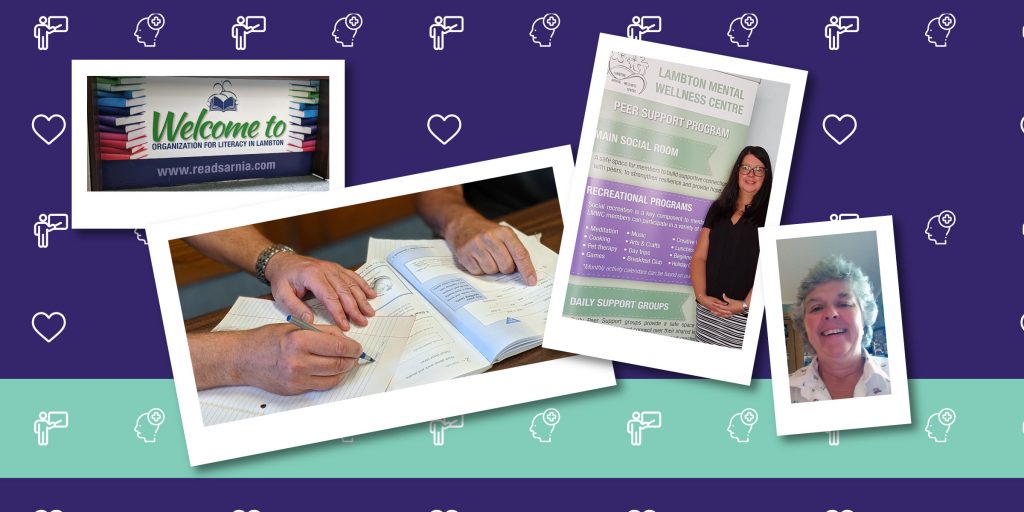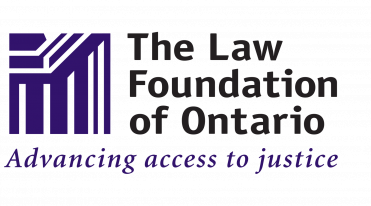
We all experience mental health as a continuum: sometimes our mental health is balanced and sometimes it isn’t. According to a report prepared for the Mental Health Commission of Canada, about half of Canadians will have or have had a mental illness by the age of 40.
The positive news is that information and services are available to help, including a new initiative by Community Law School (Sarnia-Lambton) (CLS), a nonprofit organization dedicated to public legal education and information (PLEI).
“There is a never-ending group of people who are impacted by mental health,” says Margaret Capes, BA (Hons.), LLB, MAdEd, Legal Education Coordinator at CLS. “It’s not always easy to understand the laws and how they fit together, especially for the family members and friends of someone who is living with a mental health illness.”
In 2018, in collaboration with Lambton Mental Wellness Centre and a grant from The Law Foundation of Ontario, the organizations produced a series of Mental Health Laws and Advocacy workshops tailored to information that family and friends could use to support their loved ones.
Seeing the impact of the series, Margaret decided to extend its reach to include frontline workers. With a second Foundation grant, the original friends and family members workshop series is being adapted into an online course through Lambton College, making it accessible to anyone across the province starting in 2021. The Foundation has provided close to $300K in project grants to CLS since 2000.
“Navigating the mental health system can be overwhelming, especially in a crisis situation,” says Cheryl Iacobelli, Executive Director at Lambton Mental Wellness Centre. “There’s not wide public knowledge out there so we looked at the mental health laws and found a way to fill the need by building a body of legal literacy to help people gain a more solid understanding of the many components in our mental health system.”
At a workshop piloting the course content, one frontline worker approached Margaret to share that she now understood what her clients meant when they told her they’d been in the hospital because they’d been ‘formed’. “With the workshop, it all made more sense; what that meant under the Mental Health Act and what it meant for the person in the hospital,” says Margaret, explaining that ‘formed’ often means involuntarily hospitalization.

This type of information also helped staff at the Sarnia-based Organization for Literacy in Lambton. Its learners want to improve their math, reading, writing, and computer skills. Most have had life experiences, including mental health challenges, that posed barriers to accessing education. As they develop a relationship with staff, learners talk about things going on in their lives—an incident with their landlord, an event at work, or a stay in hospital.
One learner mentioned they wanted to better understand how their Workers’ Safety and Insurance Board (WSIB) payments would be affected by their Ontario Disability Support Program (ODSP) application. The instructor was able to review the problem, offer guidance, and connect them to resources. In the end, the learner successfully applied for ODSP without losing any of their WSIB payments.
“The workshop helped us learn to listen to the terminology our learners are using so we can connect them with other services,” says Lisa Shearer, General Manager at the Organization for Literacy in Lambton. “Now we hear these kinds of conversations and we can provide guidance on how to help them navigate the system. When we’re comfortable in our knowledge and abilities as instructors, we’re better able to support our learners and can help them feel more confident.”
“The law is the law is the law. The Mental Health Act, the Health Care Consent Act, the Substitute Decisions Act, the privacy laws that we cover, they all apply equally in Rainy River as they do in Belleville or Sarnia,” says Margaret. “The way the physicians and support groups help folks with mental health challenges may vary from community to community but there isn’t a different law.”
The province-wide online Mental Health Laws and Advocacy course is open to everyone, including individuals living with mental illness, loved ones of people living with a mental illness, and community-based workers. It will cover topics such as: substitute decision-making, assessment and hospitalization, consent to treatment, community treatment orders and plans, and privacy rights.
“The online program will create even greater awareness and will provide easy to understand and accessible information that all Ontarians should have a right to,” says Margaret.


